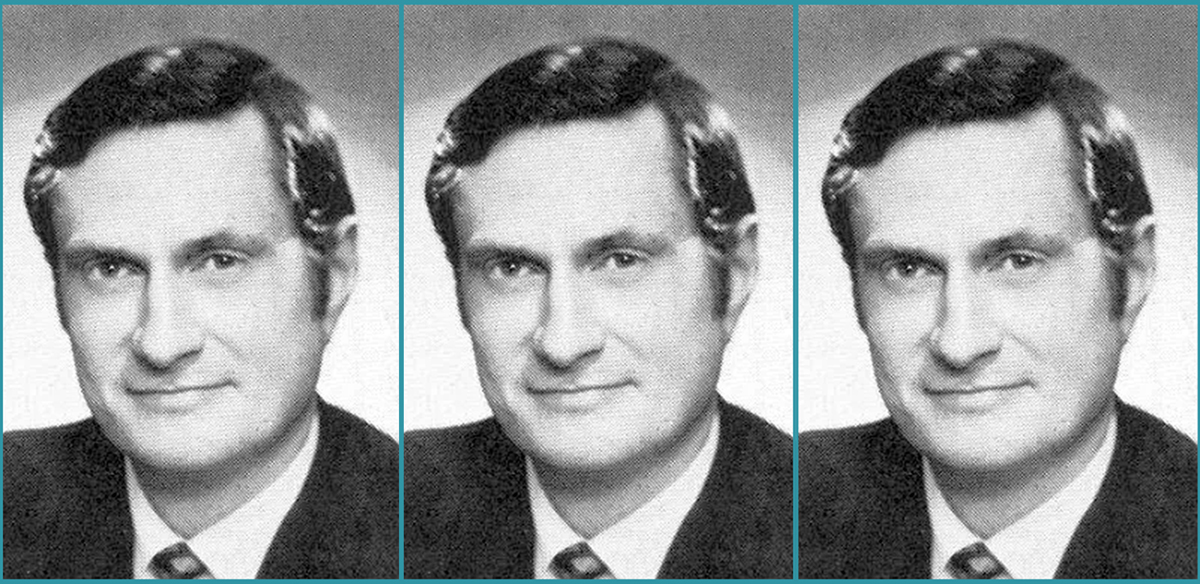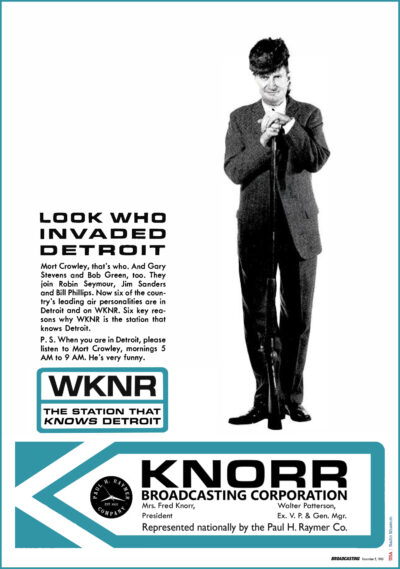Mort Crowley Became the Bold and Creative Voice of '60s Radio Mort Crowley was more than just a radio personality—he was a pioneer of creat
Mort Crowley Became the Bold and Creative Voice of ’60s Radio
Mort Crowley was more than just a radio personality—he was a pioneer of creativity and a fearless voice in the competitive world of 1960s broadcasting. Known for his wit, innovation, and strong principles, Crowley’s career spanned several influential radio stations, leaving an indelible mark on the golden years of Top 40 radio.
A Timeline of Mort Crowley’s Radio Career
KWK (St. Louis, 1958-1959): Mort began making radio waves in St. Louis, showcasing his sharp wit and on-air creativity.
WLS (Chicago, 1960): Crowley joined WLS during its transition to a Top 40 format. He was part of the station’s inaugural lineup and played the first song under the new format, “Alley Oop” by the Hollywood Argyles. His time at WLS demonstrated his ability to adapt to new formats and connect with audiences in vibrant ways, cementing his role as a rising talent in radio.
WKNR (Detroit, 1963-1964): Formerly known as WKMH, WKNR transitioned to a “Top 30 plus-one” format in late 1963 under the guidance of consultant Mike Joseph. Mort Crowley, a KHJ alumnus from Hollywood, joined the station’s lineup alongside Sam Holman, Robin Seymour, and Gary Stevens. As WKNR’s first morning host, Crowley anchored the station’s rise to the top of the ratings. His innovative call-in segments were so popular that they jammed local phone exchanges, leading to his dramatic on-air resignation on January 24, 1964, over a dispute with Michigan Bell.
This moment underscored Crowley’s unwavering commitment to creative listener engagement and his refusal to compromise on principles. It was a defining point in his career, cementing his reputation as Detroit’s first known radio “rebel” and as a figure unafraid to take a stand on any issue, and at times he made that known while on the air.
Mort Crowley | WKNR | January 24, 1964
Audio Digitally Restored by USA Radio Museum
WDGY (Minneapolis, July 1964): After leaving WKNR, Crowley joined Storz-owned WDGY in Minneapolis. In a Billboard interview, published July 17, 1965, he reflected on his departure from WKNR and expressed gratitude for a chance to rebuild his career. Mort joined Storz-owned WDGY, Minneapolis, in July 1964 and later moved to St. Louis with Storz’s KXOG (January 1965). Mort told Billboard (7/17/65) by phone he hopes to regain the ground he lost by his mistake (having left WKNR) and he noted: “Thank God, I have an opportunity to do it.” At WDGY, Crowley continued to showcase his professionalism and creativity, earning respect as a broadcaster who could adapt and thrive in different markets.
Mort Crowley | WDGY | January 7, 1965
Audio Digitally Restored by USA Radio Museum
KXOG, KMOX, KMOX-FM, WIL, and KSD (St. Louis, 1965-1988): Crowley spent 14 years in St. Louis radio, working at multiple stations and holding roles such as program director, operations manager, and morning drive announcer. His time in St. Louis solidified his reputation as a stalwart in broadcasting, where he cultivated a loyal listener base and continued to innovate in on-air programming. Crowley’s sharp wit and ability to connect with audiences remained hallmarks of his career.
Other Cities: Beyond St. Louis, Crowley’s career included stints in Cleveland, Los Angeles (KHJ), and Denver. Each stop offered him opportunities to experiment with new formats and engage diverse audiences, further showcasing his versatility and creativity.
Mort Crowley’s Broader Contributions
Crowley’s influence extended beyond his individual performances. He was part of pivotal transitions in radio formats, like WKNR’s shift from soft instrumental music to a bold Top 40 approach. His role in WKNR’s lineup as its first morning host set the tone for the station’s rise in popularity. Beyond entertaining listeners, Crowley pushed the boundaries of audience interaction with his call-in segments, a creative innovation that demonstrated his understanding of radio’s potential to create community and connection.
Crowley’s colleagues and peers also respected his abilities. Working alongside industry veterans like Robin Seymour and Gary Stevens, Crowley helped establish WKNR as a powerhouse station. His bold personality complemented the station’s ambition, and his departure after his on-air resignation left a lasting impact on listeners who admired his principles.
A Legacy of Boldness and Creativity
Crowley’s time at WKNR remains one of the most memorable chapters of his career. His on-air resignation over the phone line controversy highlighted his refusal to compromise on his values. Following his departure, Frank “Swingin” Sweeney, who had previously worked at WKBN in Youngstown, Ohio, stepped in to fill the morning-drive slot.
Sadly, Mort Crowley passed away on March 30, 1995, at his home in Miquon, Wisconsin, after a lengthy battle with prostate cancer. He was 63 years old. Despite his untimely passing, Crowley’s legacy endures as a testament to the power of boldness and creativity in broadcasting.
For fans of radio history, Crowley’s story serves as both an inspiration and a reminder of the enduring impact of voices that dare to be different. Whether it was standing up for his beliefs or captivating listeners with his on-air charm, Crowley exemplified the fearless spirit of radio’s golden decade in the 1960s, and beyond.
_____________________
A USARM Viewing Tip: On your mobile or tablet device? Finger-tap the above featured Broadcasting ad and stretch image across your device’s screen for LARGEST digitized view.


